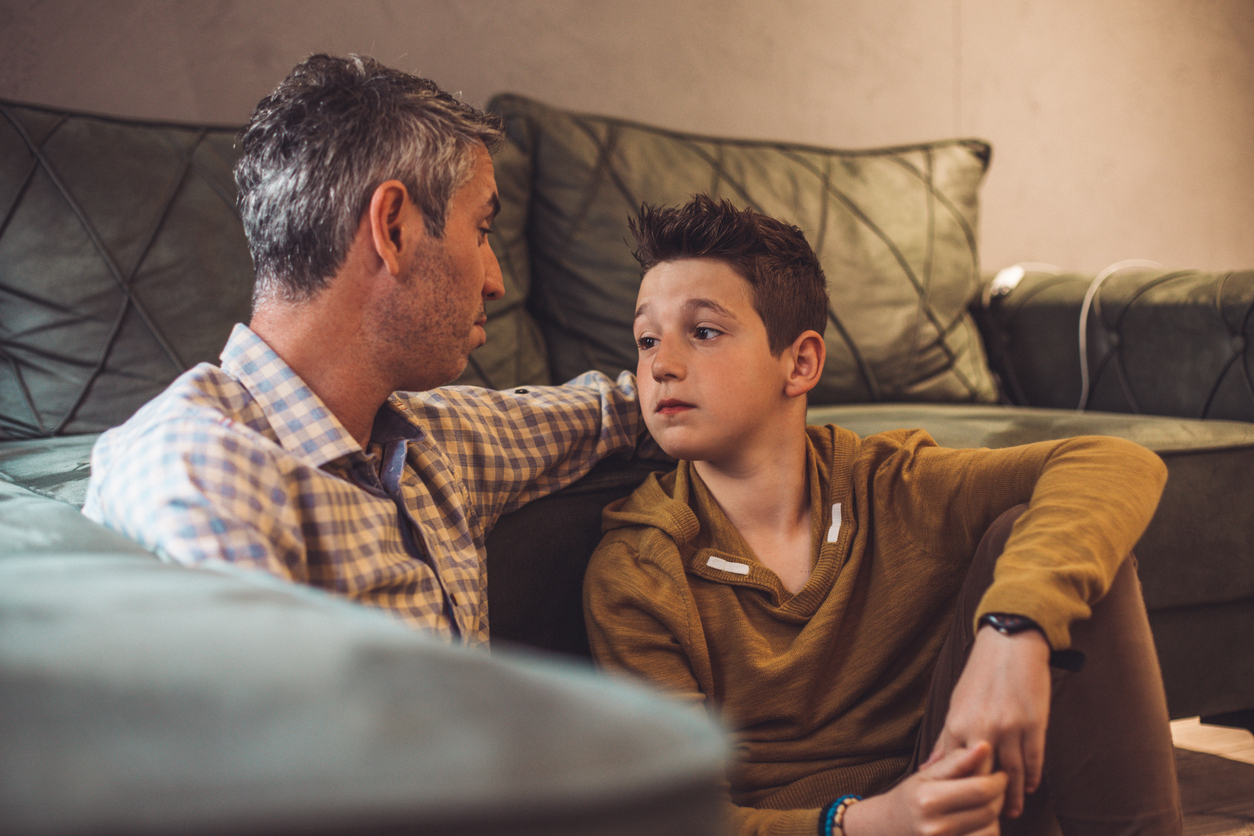How to Do a Drug Intervention with Your Teenager
Description: Let’s discuss the dos and don’ts of how to do a drug intervention with your teen. Learn how to provide the support needed to address addiction issues.
Summary: Talking to your teen about drugs can be difficult. Staging a drug intervention is even harder. We will focus on the practical advice on how to approach the issue of drugs and addiction and help guide you and your teenager towards a path of long-term recovery.
Introduction: We often hear about how today’s teens aren’t staying out as late, getting into as much trouble, or even using drugs as often as the teens of yesteryear. But that doesn’t mean our kids aren’t at risk. Over one in ten high school students have used illicit or injection drugs, like cocaine, heroin, meth, or ecstasy. Over one in eight students have misused prescription opioids.
Furthermore, today’s designer drugs and illicit opioids are more likely than ever before to cause overdoses and deaths, due a flood of fentanyl on the black market. Drug use among teens is also associated with a much higher risk of sexual violence, mental health issues, and suicidal ideation.
If you’re worried that your teen might be taking drugs – whether it’s marijuana or a lab-made party drug – you’re not alone. If your teen’s behavior has been changing rapidly, accompanied by physical signs or symptoms of drug use, then you might be thinking about staging an intervention and getting them the help, they need. Here’s what you need to know first.
Dos and Don’ts of How to Do a Drug Intervention
Drug interventions don’t usually hinge on a single successful intervention, but starting things off on the right foot can make a big difference in the long-term. It’s important to reiterate and be consistent with your priorities. What are you accusing your teen of? What do you want them to do? How are you planning to help?
- DO talk to a professional.
- DON’T go into an intervention alone, or without discussing the specifics with your family members.
- DO be sure that your teen is struggling with an addiction to begin with.
- DON’T demonize or come across as judgmental.
- DO discuss your treatment ideas or wishes with your teen.
- DON’T tell them to get help alone, or else.
Interventions often go wrong when parents or friends approach their loved one at the wrong time, with the wrong attitude, or mismatched and vague goals. Be sure everyone’s on the same page and pick the best time and place to have an adult, lucid conversation with your teen.
Talk to a Professional
Coordinating an intervention can be difficult, especially without any prior experience. If it’s your first time, it helps to talk to a professional. They will guide you through making a checklist specific to you and your teen’s circumstances, and guide you through the process step-by-step.
Coordinate with Friends and Family
If you’re approaching your teen as a group, discuss what you plan to say and ask beforehand. There should be no surprises as to what anyone’s going to say, or how they’re going to act. If there are differences of opinion on how to settle the matter, deal with those differences before the intervention starts, and make sure you’re on the same page.
Be Sure It’s a Substance Use Issue
Evidence goes a long way. Addiction is a serious issue, but some of the telltale signs can also just be a sign of a different problem, such as depression, insomnia, or an eating disorder.
Don’t Demonize or Judge
Even kids know that drugs are bad. Teens typically aren’t going to shy away from drug use solely out of moral reasons – and telling them something they already know won’t help, except to distance yourself from your teen and take the moral high ground. Be productive with your approach, focusing on getting your teen to agree to treatment.
Discuss Treatment Options Together
At some point, it may be important to draw the line and tell your teen that you’re sending them to a treatment place for their own good. But until that point, include your teen in the process of selecting and talking about treatment. It helps when they feel that they’re actively taking steps to get better, rather than being told what to do.
Emphasize Support and Family
Your teen should know that they’re never alone in all of this. Addiction can be crushingly lonely, even if you’re otherwise surrounded by friends and family in your day-to-day life. Emphasizing that you’ll be with them and in their corner throughout the treatment process can help, especially if you choose to get involved in treatments, such as through family therapy.
Substance Abuse Treatment with Visions
Drug interventions are often the first step towards long-term teen addiction recovery – and the first step for a family or group of friends to begin their journey as a support network for their loved one. As such, many people often have questions about staging an intervention, and the steps that follow. At Visions, we hear many such questions.
Many parents wonder what common mistakes to avoid during a drug intervention with a teen. An important one is not to treat it as an opportunity to lecture. Drug addiction may be a serious mistake, but it’s a mistake nonetheless, and not one that most people – especially teens – ever consciously choose to make. While it might feel good to get certain things off your chest, talking down to your teen can actively hurt your relationship during recovery, and undermine your ability to support them.
Another big question is how to be sure that it’s an addiction problem. This one is tough to answer. A specialist will be better able to help you figure out what you might want to do, given your circumstances or specific information. General tips include taking notes of changes in behavior, keeping stock of potential substances in the house (such as prescription pills), and if you’re up for snooping around, looking for potential hiding places around the house.
Finally, parents often wonder what comes next after a drug intervention. Most of the time, the initial intervention is basically a conversation – which is followed by another conversation, and another. The goals might change over time. For some parents, it’ll be to see noticeable improvements in their teen’s behavior and promises to stop using. Sometimes, drug use doesn’t automatically mean drug addiction. In other cases, however, treatment may be necessary if a teen needs help. The goal, then, would be to find a treatment center or clinic that they’re comfortable with, or are willing to go to.
You don’t always need to ask your teens to go to rehab. In many cases, an outpatient program can provide enough support for your teen to successfully recover from addiction. To find out more, check out our intensive outpatient program for adolescents at Visions.
Conclusion
Whether it’s the initial intervention or a subsequent intervention after a relapse, it’s important to set goals and keep an eye out for potential treatment programs for teens. Setting up an initial intervention can be daunting, and it’s normal to be worried about adverse outcomes or negative reactions. It helps to work with a professional through every step of the way, and to have a clear goal in mind – such as an outpatient treatment program. If you want to learn more about planning and setting up a drug intervention for your teen, contact us at Visions.








